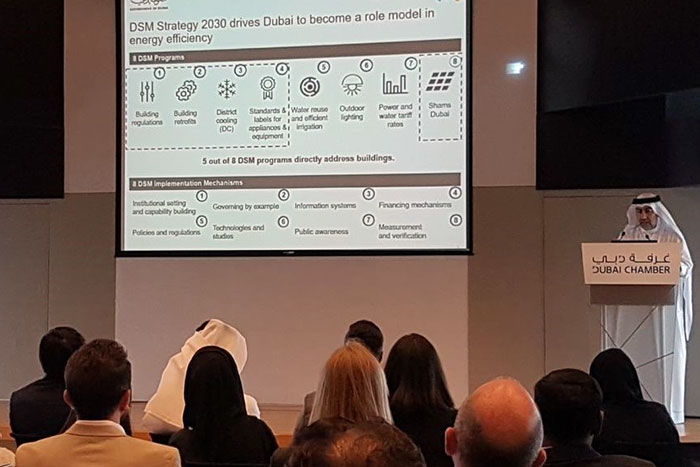UAE is aligned with global timeline to implement ‘Nearly Zero Energy Buildings’
 Other News
Other News Subscribe to newsletter
Subscribe to newsletter
| 29 Sep 2017 |
The UAE is aligned with the global timeline to adopt the concept of ‘Nearly Zero Energy Buildings,’ states a new report by Emirates Green Building Council (EmiratesGBC), an independent forum aimed at conserving the environment by strengthening and promoting green building practices.
Nearly Zero Energy Buildings (nZEBs) are an essential measure to support the UAE’s pledge of combating global warming at COP21 in 2015 and its ratification of the Paris Agreement in 2016 as well as the sustainable development goals outlined by the UAE Vision 2021, Abu Dhabi Plan 2030 and Dubai Plan 2021. The concept of nZEBs assume significance since buildings in the UAE have been found to consume up to 70 to 80 per cent of the total electricity generated. In Dubai, nearly a quarter of the existing building stock has been found to be energy-inefficient.

To support the nation in achieving its green vision, EmiratesGBC undertook a comprehensive study of nZEBs including its various concepts and their global implementations. The UAE’s current initiatives, strategies, building codes and rating systems were evaluated. EmiratesGBC also reached out to 25 leading companies to obtain energy data on best practices of low energy buildings as well as surveyed 100 industry leaders and experts.
The report, ‘Defining Nearly Zero Energy Buildings in the UAE – 2017,’ was launched by EmiratesGBC at an event supported by Dubai Chamber, held to mark the World Green Building Week 2017. This year, the World Green Building Week is observed with the goal of making all buildings net zero by 2050 in a collective effort against combating climate change. The launch was followed by a stakeholder discussion on its key findings.
Saeed Al Abbar, Chairman of EmiratesGBC, said: “The concept of near zero energy buildings (nZEBs) is aligned with the sustainable development goals of the nation and its global commitment to reduce greenhouse gas emissions in line with the COP21 climate change agreement. This technical research publication underlines the commitment of EmiratesGBC to support the sustainable vision of the United Arab Emirates through the implementation of nZEBs, which will also boost the adoption of energy efficiency as well as renewable energy in built environments. With some compelling success stories in implementing nZEBs in the UAE already, the nation is well-aligned with the global timeline for their adoption. Through public private sector collaboration and promoting awareness on the long-term beneficial impact of energy efficient buildings, we can bring tangible change.”
According to the report, a Nearly Zero Energy Building in the UAE is defined as ‘a highly energy efficient building with a site Energy Use Intensity (EUI) less than 90 kWh per sq metre per year, and covers a significant portion of its annual energy use by renewable sources produced on-site or off-site.’ This definition is meant to serve as a reference to support the development of nZEBs in the country.
nZEBs are a globally accepted concept with clear targets set in the US, Australia and in some EU member states with a general timeline of 2020-2030 set for its adoption. As per EmiratesGBC’s report, the UAE is ready for its adoption as per the global timeline. It also points out that the concept of nZEBs is strongly aligned with the national vision of the country, especially in driving innovation in renewable energy and energy efficiency.
The UAE already has several early adopters, which underpins that the time is appropriate to transition from ‘early adopter’ to ‘mainstream adoption.’ The report also recommended that nZEBs are first introduced in the public sector prior to its roll out in the private sector.
EmiratesGBC’s report states that with cost being an important consideration for nZEBs, any action plan must be cost-effective and focus on a strategy similar to that adopted by many EU member states. The report recommends that renewable energy must be considered beyond the plot boundary of a building for nZEB consideration. This could be by taking the form of district renewable energy systems or potentially extending the regulated Renewable Energy Certificates.
It also recommends that energy benchmarks be established in the UAE to enable the evaluation of the energy characteristics of buildings, which will help guide stakeholders in reducing energy consumption levels, and serve as a reference point for nZEB EUI targets. The comprehensive report presents the challenges and opportunities to nZEB in the UAE, sustainability and building strategies, energy conservation measures, and passive design in nZEBs. It also features case studies on the participating properties, energy indicators of nZEBs and energy analysis.




